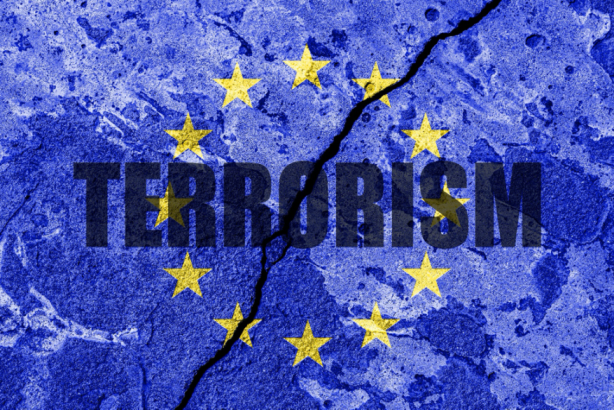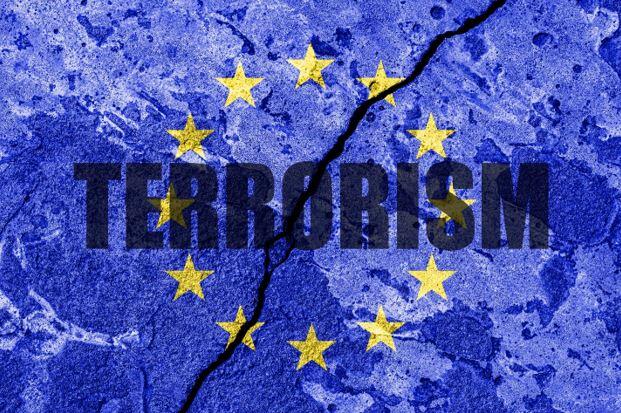Abstract: The notion of terrorism in itself encompasses much more than just a terrorist act, a knife attack, bomb or rifle assault. In that sense, it is not feasible to assume that the perpetrator was born as a terrorist in order to carry out an attack in which innocent civilians are murdered. Terrorism emerges from ideas and beliefs and as such, it has conditions, causes, theorists, exploiters, and executers. Equally, the world has been witness to many conflicts, some of which have had direct links to terrorism whereas with others, terrorism was a pretext. Taking into account the pain that innocent civilians including Muslims suffer due to acts of terrorism, it is critical to pause and ask whether it could be tackled better. In other words, “Are the right things being done to combat terrorism?”
Bottom-line-up-front: It would be beneficial to aim for a change in mindsets among potential jihadis in addition to their orientation, so as to prevent the brainwashing that leads to religious fanaticism. In an ideal scenario, they could even be converted from recipients of extremism into callers against the issue. Undoubtedly, such groups need to be convinced that the existing policies and laws enacted by the European Union (EU) are neither against the religion of Islam nor Muslims.
Problem statement: How does EU counter-terrorism policy fail to address terrorism and its ideology, a phenomenon that permeates across borders through ideas, not bombs?
So what?: Moving further, there is a need for comprehensive re-evaluations regarding anti-terrorism laws, integration policies within the EU, the role of media and the turning of migrants into a political trading commodity. Accordingly, hate speech, mosques, religious associations, imams in mosques and the mental health of parents and children among other factors should be considered.

Source: shutterstock.com/Evgenii Emelianov
A Lack of Common Understanding
As if caught in an endless loop, legislators in the EU are constantly passing laws and policies to combat terrorism and the establishment of such organizations. However, measuring the success of said laws and policies is rather troublesome. Especially when confronted with the question, “Can such policies eliminate terrorism and extremist thinking?”
It is important to point out the ambiguity that accompanies the word terrorism. According to the United Nations (UN), there is no common international understanding for the term “terrorism”.[1] Its definition differs between states, organizations and entities[2]. Intermittent terrorist attacks across EU countries have been on a rise. In the year 2020 alone, France witnessed four jihadist attacks, the UK three and Austria one. Those attacks were extremely shocking to the international community, the EU and the Austrian community in particular given that Austria had successfully avoided political and terrorist turbulence over the years.[3] In sum, the result of the attacks in Europe was at least 10 persons dead and 27 injured.[4] All deaths and injuries were directly connected to jihadist attacks.
This paper seeks to present an alternative perspective from the policies adopted across the world in general and within the EU. While it holds that no one can agree on a single definition for the term terrorism, it is commonly known that jihadism, extremism and terrorism all start with an idea, theory and fatwa (a ruling point of Islamic law). Therefore, any new policy or initiative must begin with countering the idea that convinces jihadists that carrying out such attacks and killing innocent people will lead them to their promised heaven. The root cause of these attacks lies in hatred towards the so-called West, and the notion that holding the West accountable, according to an (invalid) Fatwa, is an implementation of God’s law. It is based on the false belief that maintaining the unity and integrity of religion begins with transferring the battle to the West.[5]
Integration
Not a single European government or organization that has been able to identify clear criteria for measuring the success of integration policies among European nations. A common characteristic shared among the most successful integration schemes is that they are driven by political ideology, personal wishes, and immigrant driven motives. In like manner, it must not be disregarded that European countries have provided the environment and appropriate grounds for integration. Nonetheless, their shortcomings can concisely be pointed out. They raise the questions such as: “Why have they not achieved what they desired?” and “Why have some succeeded in integration whereas others have taken the path of extremism?”
One cannot generalize and conclude that the policies of integration and the laws deriving from them have changed radical Muslims’ existing dogma, for instance, the conviction that Western governments are targeting Islam. Deductively, the prevalence of such beliefs points to the fact that left undealt with, it is possible to garner more militant supporters. Therefore, according to Jihad, there must be revenge against Europe, America and everything that hampers the spread of Islam.
Not only has it been highlighted that measuring the success of integration policies is difficult, assessing the success of policies decreed to combat extremism and terrorism is similarly complicated since the fight is against thoughts and ideology.
Our battle, where do we start?
Countering terrorism should primarily fight an idea, its financier, as well as the people that provide the facilities to conduct a jihadist operation. One has to start from the bottom not the head of the pyramid, which arguably was the mistake made with the assassinations of Osama bin Laden, Abu Musab al-Zarqawi and Abu Bakr al-Baghdadi as examples. The latter will not end Jihad. Indeed, terrorist attacks are not solely executed by the head or the theorist of a terrorist group. Such a member is there to plan and prepare, not to implement or micro-manage operations.
In terms of solutions, what if it were possible to alter the mindset of a prospective jihadi, counter-direct him, prevent brainwashing or even turn them into a defender rather than extremist. The end goal would be to convince said potential jihadi that EU laws and policies are not at discord with the religion of Islam and Muslims. For better illustration, such approaches might include video campaigns explaining the terms and basics of modern societies and how rather than being at odds with Islam or Muslims, there is in fact an underlying principle of respect. These campaigns could also be used to elaborate on democracy, the civil state, parliamentarism, and social contracts among others. The reason for this being is that the above-mentioned principles and basics of any modern society are integral to the Islamic religion too. To support this argument, evidence(s) from the Quran, Sunnah (Islamic teachings) and events that happened during the life of Prophet Muhammad and the four caliphs after him can be utilized.
Most importantly, these campaigns could serve to convince a potential terrorist that the Islamic religion does not call for killing, bombing or attacking with a sword, but rather for tolerance. The same tools must demonstrate this as those used by the emirs (here, leader in a terrorist organization) and theorists of terrorist groups. Comparatively so, they should be applied differently, in such a way that the Koranic verses, prophetic talks, interpretations and explanations used by extremists to justify their terrorism are the same tools used to combat their terrorism. These are the responsibilities of NGOs especially those run by immigrants. Likewise, the responsibilities also lie with Muslim religious authorities in the European Union.
Conclusively, it is crucial to explain to target groups that the rules they are learning are likely to be extremist propaganda. In addition, it would help to point out that the EU’s integration laws are designed to help them to live in a society that is based on equality, respect and noble values that guarantee them a dignified life. Above all, they should know that all the aforementioned laws respect Islam and provide full freedom to practice the Islamic religion’s teachings.
Mohammed Qudmany is the executive manager of the MENA Research & Study Center. As a former graduate of the University of Damascus in Syria, his areas of interest are strategic, enlightenment and counterterrorism studies. Mr. Qudmany’s earlier publications and efforts have been harnessed for the benefit of the MENA Research & Study Center alongside the Department of Economics at Damascus University.It goes without saying that the views contained in this article are the author’s alone. For that reason, they should not be misattributed to the MENA Research & Study Center.
[1] Office of the United Nations High Commissioner for Human Rights, “Human Rights, Terrorism and Counter-terrorism,” Fact Sheet 32, 5-6. (https://www.ohchr.org/documents/publications/factsheet32en.pdf).
[2] Page No. 5 https://www.un.org/sc/ctc/wp-content/uploads/2017/01/2006_01_26_cted_lecture.pdf.
[3] Despite the Horrors in Vienna and Paris, jihadism has declined, https://www.economist.com/europe/2020/11/03/despite-the-horrors-in-vienna-and-paris-jihadism-has-declined, Nov 07, 2020.
[4] https://www.europol.europa.eu/activities-services/main-reports/european-union-terrorism-situation-and-trend-report-te-sat-2020.
[5] Shaykh-il-Islam and Muhammad Tahir-ul-Qadri, Fatwa on Terrorism and Suicide Bombings (Minhaj-ul-Quran Publications, 2010), passim.






